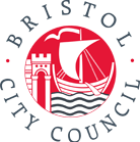Everyone Included - research opportunities should be available to everyone
Following her keynote address at the NHS Research and Development (R&D) Forum at the end of May, Hannah Antoniades believes every service user has the right to decide if they want access to information about mental health and dementia research.
- 6th June 2016
Following her keynote address at the NHS Research and Development (R&D) Forum at the end of May, Avon and Wiltshire Mental Health Partnership’s Hannah Antoniades believes every service user has the right to decide if they want access to information about mental health and dementia research. This is part of a series of blogs, where key players in Bristol’s health sector write about a health related subject of their choice. If you want to contribute, email [email protected].
As we move into Avon and Wiltshire Mental Health Partnership Research and Development’s clinical trials week, I’ve been thinking about the hard work we’ve been doing in Avon and Wiltshire Mental Health Partnership NHS Trust (AWP) to improve service user access to high-quality research studies.
I was delighted to be asked to give a key note presentation at the national NHS Research and Development Forum about the fantastic work we’ve been doing in AWP to do exactly that – improve service user access to research, and most importantly let people decide for themselves whether they want more information. We’ve called this approach Everyone Included: Research for All. If you haven’t heard of this before, it’s simply an opt-out approach, whereby we aim to inform people about relevant research opportunities unless they tell us otherwise.
It was absolutely wonderful to see how well the presentation went down with the whole audience. Twitter went berserk! So many of the delegates tweeted about what an excellent and exciting approach this was and how wonderful it was to see that we were giving people the opportunities to be involved in research.
The R&D Forum is about leading, promoting, shaping and influencing quality health research. And their annual conferences aim to bring national research and development departments together to share best practice, solve national problems, and importantly network with like-minded people across the country. Whether you work in a community or acute hospital, have a mental or physical health problem, are seen mainly by your GP or a specialist – my colleagues across the nation shared similar opinions and challenges about improving service users’ access to research.
I am so thrilled that we have such a great approach, enabling us to create equity of access to research, putting the choice back in the individual’s hands, and not relying on busy clinicians, who have such limited time, to remember to ask people about whether they’d like to hear about research.
I left the conference really positive and motivated, having heard from so many other amazing colleagues across the UK about the wonderful things they’re doing to make research happen in the NHS. Local colleagues included the Mental Elf talking about how we make research findings more understandable to people and Dr Peter Brindle, who spoke about bridging the gap between researchers and patients, via engaging and mobilising staff across the NHS. I am proud to work for the NHS, and I am even prouder to be part of Research and Development – changing the future of our services and improving the lives of everyone across the country by ensuring we do high quality research.






